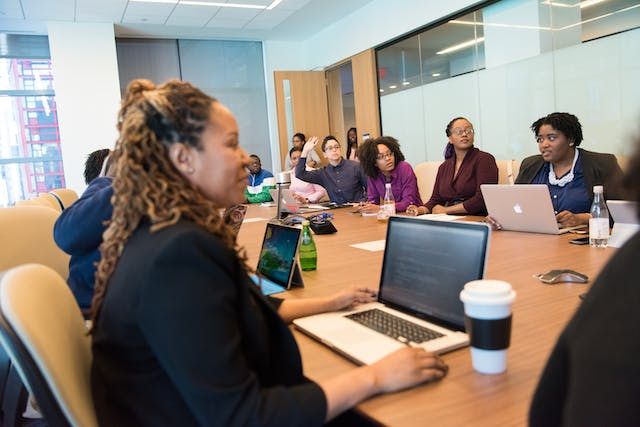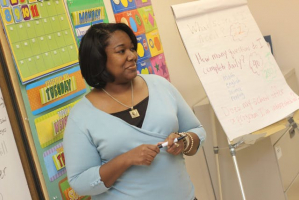Top 10 Expository Essay Topics on Education and Samples
Going on a journey of knowledge with Toplist collection of expository essay topics on education and accompanying samples. Uncover thought provoking subjects ... read more...that illuminate various facets of education, providing valuable insights and guidance for your expository writing endeavors. Explore the richness of educational discourse through these carefully curated topics and examples.
-
Essay topic: Is Homework important? Explain Why?
Answer:
In the realm of education, the debate over the importance of homework has persisted for years, echoing in the minds of students, parents, and educators alike. Picture this: a student, laden with textbooks and assignments, contemplates the value of those after-school tasks. The attention grabber lies in the universal experience of grappling with homework, setting the stage for a nuanced exploration of its significance.
Homework has been a staple of education for decades, with roots tracing back to the traditional model of reinforcing classroom learning. Today, its importance remains a subject of scrutiny and discussion. The informative thesis statement asserts that understanding the role of homework necessitates examining its potential benefits and drawbacks in fostering academic growth and learning habits.
The first main idea scrutinizes the potential benefits of homework. Supporting evidence suggests that homework serves as a valuable extension of classroom learning, providing students with the opportunity to reinforce and apply concepts independently. Analysis of this evidence emphasizes the role of homework in reinforcing foundational knowledge and preparing students for more complex academic challenges.
The second main idea navigates through the development of essential skills. Evidence highlights that homework contributes to the cultivation of skills such as time management, responsibility, and self-discipline. Analyzing this evidence underscores that these skills are not only crucial for academic success but also for personal and professional growth in the future.
The most important central idea delves into the potential drawbacks of homework. Supporting evidence acknowledges concerns about excessive workload leading to stress and burnout. Analysis of this evidence emphasizes the need for a balanced approach, recognizing that homework should complement, not overshadow, the overall well-being of students.
In conclusion, the debate surrounding the importance of homework is multifaceted. Restating the thesis asserts that understanding its role involves weighing its benefits and drawbacks. As we conclude, unanswered questions prompt continued reflection on refining homework practices. The call to action encourages educators, parents, and policymakers to collaboratively explore effective and meaningful ways to incorporate homework into the educational landscape, ensuring it remains a tool for growth rather than a source of undue stress for students.
Photo by Andrea Piacquadio via pexels 
Photo by August de Richelieu via pexels -
Essay topic: Why is teaching considered a noble profession?
Answer:
In the grand tapestry of professions, teaching stands as a beacon of nobility, a vocation that transcends the mere imparting of knowledge. Imagine this: the figure of a teacher, shaping minds and instilling wisdom in the hearts of the next generation. The attention grabber lies in the profound impact teachers have on individuals and society at large. As we embark on an exploration of why teaching is considered a noble profession, a brief background reveals the historical and cultural significance attached to this esteemed calling. The informative thesis statement asserts that the nobility of teaching is rooted in its transformative influence on learners, the nurturing of future leaders, and the selfless dedication of educators to the betterment of society.
The first main idea delves into the transformative influence of teaching. Supporting evidence suggests that teachers play a pivotal role in shaping the intellectual and moral development of their students. Analysis of this evidence emphasizes that the knowledge and values imparted by teachers extend far beyond the classroom, shaping the character and perspectives of individuals.
The second main idea navigates through the nurturing of future leaders. Evidence highlights that teachers contribute significantly to the development of essential skills and qualities in students, preparing them for leadership roles in various spheres of life. Analyzing this evidence underscores that the impact of teaching extends beyond the acquisition of subject-specific knowledge to encompass the cultivation of critical thinking, creativity, and social responsibility.
The most important central idea revolves around the selfless dedication of educators. Supporting evidence illustrates that teaching often involves long hours, personal sacrifices, and unwavering commitment to the success of students. Analysis of this evidence emphasizes that the nobility of teaching lies in the genuine care and investment teachers make in the lives of their students, driven by a passion for education and the belief in its transformative power.
In conclusion, teaching is rightly considered a noble profession, with its nobility rooted in the transformative influence on learners, the nurturing of future leaders, and the selfless dedication of educators. Restating the thesis asserts the enduring significance of this noble calling. As we conclude, unanswered questions prompt contemplation of how society can further support and appreciate the noble endeavors of teachers. The call to action encourages recognizing and celebrating the invaluable contributions of educators, fostering an environment that cherishes the noble spirit of teaching.
Photo by Christina Morillo via pexels 
Photo by LinkedIn Sales Navigator via pexels -
Essay topic: Benefits of learning foreign languages
Answer:
In the mosaic of global interactions, the ability to communicate across borders becomes a transformative skill, much like a universal key to understanding diverse cultures. Picture this: an individual navigating the linguistic tapestry of a foreign language, unlocking doors to new perspectives and forging connections across continents. The attention grabber lies in the immense benefits that learning foreign languages brings to individuals and society. A brief background underscores the increasing interconnectedness of our world, making multilingualism an asset in personal and professional realms. The informative thesis statement posits that the advantages of learning foreign languages extend beyond mere communication skills, encompassing cognitive, cultural, and economic dimensions.
The first main idea explores the cognitive benefits of learning foreign languages. Supporting evidence suggests that the process of mastering a new language enhances cognitive functions such as memory, problem-solving, and multitasking. Analysis of this evidence emphasizes that language acquisition stimulates the brain, promoting mental agility and resilience.
The second main idea delves into the cultural advantages of learning foreign languages. Evidence highlights that language is a conduit to cultural understanding, fostering appreciation and empathy for diverse perspectives. Analyzing this evidence underscores that multilingual individuals often demonstrate a heightened cultural awareness, breaking down barriers and contributing to a more interconnected global community.The most important central idea revolves around the economic advantages of multilingualism. Supporting evidence illustrates that proficiency in multiple languages enhances employability and opens doors to international career opportunities. Analysis of this evidence emphasizes that businesses and organizations value language diversity, recognizing its role in facilitating global collaboration and expanding market reach.
In conclusion, the benefits of learning foreign languages extend beyond the practicality of communication, encompassing cognitive, cultural, and economic dimensions. Restating the thesis emphasizes the multifaceted advantages of multilingualism. As we conclude, unanswered questions prompt consideration of how society can further support language education. The call to action encourages individuals to embrace the richness of linguistic diversity, recognizing it as a valuable asset in an increasingly interconnected world.
Photo by Andrea Piacquadio via pexels 
Photo by Canva Studio via pexels -
Essay topic: Online schooling and traditional schooling
Answer:
In the evolving landscape of education, the debate between online schooling and traditional schooling has become increasingly prominent. Imagine this: a student at the crossroads, contemplating the best path for their learning journey. The attention grabber lies in the transformative shifts in educational delivery, with online and traditional formats offering distinct advantages and challenges. A brief background acknowledges the traditional roots of education while recognizing the rapid expansion of online learning platforms. The informative thesis statement posits that understanding the nuances of both approaches is essential for individuals and policymakers alike, as they navigate the realm of education.
The first main idea delves into the advantages of online schooling. Supporting evidence suggests that online learning provides flexibility, allowing students to access educational content at their own pace and convenience. Analysis of this evidence emphasizes the adaptability of online platforms, catering to diverse learning styles and accommodating individuals with varied schedules and commitments.
The second main idea explores the strengths of traditional schooling. Evidence highlights the immersive and structured nature of traditional classrooms, where face-to-face interactions with teachers and peers foster a sense of community and engagement. Analyzing this evidence underscores the value of real-time feedback, interpersonal connections, and the traditional school environment in promoting social skills and a collaborative learning experience.
The most important central idea revolves around a comparative analysis of both approaches. Supporting evidence illustrates that while online schooling offers flexibility, it may lack the social interactions and immediate feedback of traditional classrooms. Analysis of this evidence emphasizes that the effectiveness of each approach depends on individual preferences, learning styles, and the specific educational goals of the learner.
In conclusion, the choice between online schooling and traditional schooling involves weighing the advantages and drawbacks of each approach. Restating the thesis emphasizes the importance of understanding the nuances in educational delivery methods. As we conclude, unanswered questions prompt further exploration of innovative ways to integrate the strengths of both approaches. The call to action encourages ongoing dialogue and research to create an educational landscape that best serves the diverse needs of learners in the modern world.
Photo by Julia M Cameron via pexels 
Photo by August de Richelieu via pexels -
Essay topic: Higher education and its impacts on future career
Answer:
In the journey of personal and professional development, higher education stands as a transformative pathway, guiding individuals toward future career opportunities. Picture this: a student entering the realm of higher education, driven by aspirations and fueled by the belief that academic pursuits can shape their career trajectory. The attention grabber lies in the pivotal role that higher education plays in influencing the outcomes of individuals in the job market. A brief background acknowledges the traditional association between education and career success while recognizing the contemporary complexities of this relationship. The informative thesis statement asserts that higher education is a cornerstone in preparing individuals for the challenges and opportunities of the future job market.
The first main idea delves into the acquisition of knowledge and skills through higher education. Supporting evidence suggests that universities and colleges provide a specialized environment where students can delve into their chosen fields, gaining expertise and deepening their understanding. Analysis of this evidence emphasizes the role of higher education in equipping individuals with the intellectual tools necessary for success in their future careers.
The second main idea explores the development of critical thinking and problem-solving abilities. Evidence highlights that higher education encourages analytical thinking, creativity, and the ability to solve complex problems independently. Analyzing this evidence underscores that these skills are invaluable in navigating the challenges of diverse professional landscapes, contributing to the adaptability and resilience of individuals in their careers.
The most important central idea revolves around the impact of higher education on career opportunities and earning potential. Supporting evidence illustrates that individuals with higher levels of education often have access to a broader range of career choices and tend to earn higher salaries over their professional lives. Analysis of this evidence emphasizes the long-term benefits of investing in higher education as a strategic career move.
In conclusion, higher education significantly influences future career paths by providing knowledge, fostering critical thinking, and enhancing career opportunities. Restating the thesis underscores the transformative role of higher education in shaping career trajectories. As we conclude, unanswered questions prompt further exploration of how education systems can continually adapt to the evolving needs of the job market. The call to action encourages individuals to view higher education not only as a means to acquire knowledge but also as a pathway to personal and professional growth.
Photo by Fox via pexels 
Photo by Pixabay via pexels -
Essay topic: What impact education has on people's mind
Answer:
In the intricate tapestry of human development, education weaves a profound influence on the shaping of minds. Imagine this: a world where knowledge is a guiding force, molding perspectives, fostering understanding, and fueling curiosity. The attention grabber lies in the transformative power of education on the human mind, a force that transcends mere academic learning. A brief background acknowledges the historical significance of education in civilizations while recognizing its contemporary role in navigating an ever-evolving world. The informative thesis statement posits that education is a catalyst for cognitive, emotional, and social growth, fundamentally shaping the way individuals perceive, process information, and interact with the world.
The first main idea delves into the cognitive impact of education on the mind. Supporting evidence suggests that formal education enhances cognitive functions such as critical thinking, problem-solving, and information retention. Analysis of this evidence emphasizes the role of education in expanding intellectual capacities, allowing individuals to approach challenges with analytical acuity.
The second main idea explores the emotional and social dimensions of education. Evidence highlights that education nurtures emotional intelligence, empathy, and interpersonal skills, contributing to well-rounded individuals capable of meaningful connections. Analyzing this evidence underscores the role of education in fostering social awareness and emotional resilience, essential components of a balanced and empathetic mindset.
The most important central idea revolves around the holistic impact of education on personal development. Supporting evidence illustrates that education shapes values, instills a sense of civic responsibility, and cultivates a lifelong love for learning. Analysis of this evidence emphasizes that a well-rounded education not only equips individuals with knowledge but also molds their character, influencing decision-making and ethical considerations.
In conclusion, education profoundly impacts the minds of individuals, enhancing cognitive abilities, nurturing emotional intelligence, and contributing to holistic personal development. Restating the thesis underscores the multifaceted influence of education on the human mind. As we conclude, unanswered questions prompt contemplation of how educational systems can continually evolve to meet the diverse needs of learners. The call to action encourages a collective commitment to fostering a learning environment that not only imparts knowledge but also cultivates the virtues of critical thinking, empathy, and a lifelong pursuit of understanding.
Photo by Helena Lopes via pexels 
Photo by Andrea Piacquadio via pexels -
Essay topic: How literate people are different from illiterate people
Answer:
In the vast spectrum of human abilities, literacy stands as a defining skill, shaping individuals and influencing their experiences in profound ways. Imagine this: a world where some navigate the written word with ease while others face barriers in deciphering its language. The attention grabber lies in the stark contrast between literate and illiterate individuals and the consequential impact on their lives. Brief background information recognizes the historical importance of literacy in societal development, laying the groundwork for an exploration into the distinctions between literate and illiterate individuals. The informative thesis statement posits that literacy is not merely a functional skill but a gateway to knowledge, empowerment, and a richer engagement with the world.
The first main idea delves into the cognitive advantages of literacy. Supporting evidence suggests that literate individuals have enhanced cognitive abilities, including critical thinking, problem-solving, and information processing skills. Analysis of this evidence emphasizes that literacy not only facilitates communication but also sharpens the mind, enabling individuals to navigate complex information and make informed decisions.
The second main idea explores the social and economic benefits of literacy. Evidence highlights that literacy is a key factor in accessing educational opportunities, employment prospects, and social mobility. Analyzing this evidence underscores the role of literacy in empowering individuals to participate more fully in society, fostering economic independence, and contributing to community development.
The most important central idea revolves around the broader perspective and enrichment that literacy brings to one's life. Supporting evidence illustrates that literate individuals have access to a wealth of knowledge, literature, and cultural expressions, broadening their horizons and fostering a deeper understanding of the world. Analysis of this evidence emphasizes that literacy is a transformative force, allowing individuals to engage more meaningfully with their surroundings and contribute to the cultural richness of society.
In conclusion, the distinctions between literate and illiterate individuals extend beyond functional abilities, encompassing cognitive, social, and cultural dimensions. Restating the thesis underscores the transformative impact of literacy on individuals and society. As we conclude, unanswered questions prompt contemplation of how societies can work toward eliminating literacy disparities. The call to action encourages a collective commitment to literacy initiatives, recognizing the profound influence of literacy in shaping more empowered, informed, and engaged communities.
Photo by Tima Miroshnichenko via pexels 
Photo by Christina Morillo via pexels -
Essay topic: Why is a higher degree important for getting good jobs?
Answer:
In the modern landscape of employment, the pursuit of higher education has emerged as a key determinant in securing desirable and rewarding career opportunities. Imagine this: a job market where individuals armed with advanced degrees stand out amidst the competition, positioning themselves for success. The attention grabber lies in the increasing emphasis placed on higher degrees as a pathway to professional advancement. Brief background information acknowledges the shifting dynamics of the job market, where knowledge-based skills are highly sought after. The informative thesis statement asserts that a higher degree is not merely a credential but a strategic investment that enhances skills, expertise, and marketability, thereby opening doors to more promising career paths.
The first main idea delves into the acquisition of specialized knowledge and skills through higher education. Supporting evidence suggests that advanced degrees provide individuals with in-depth expertise in their chosen fields, fostering a level of proficiency that goes beyond the scope of undergraduate education. Analysis of this evidence emphasizes the importance of specialized knowledge in meeting the demands of complex and evolving job markets.
The second main idea explores the increasing demand for higher degrees in certain professions. Evidence highlights that many professions, especially in fields such as technology, medicine, and research, now require advanced degrees as a standard qualification. Analyzing this evidence underscores that employers often view higher degrees as indicators of dedication, commitment, and a deeper understanding of the intricacies within a given field.
The most important central idea revolves around the correlation between higher degrees and career advancement. Supporting evidence illustrates that individuals with advanced degrees tend to access higher-level positions, enjoy increased earning potential, and are often sought after for leadership roles. Analysis of this evidence emphasizes the strategic advantage that a higher degree brings in navigating the competitive landscape of career progression.
In conclusion, the importance of a higher degree in securing good jobs extends beyond a mere qualification; it signifies a commitment to continuous learning and a strategic investment in one's professional future. Restating the thesis emphasizes the multifaceted benefits of pursuing advanced education. As we conclude, unanswered questions prompt consideration of how educational systems and employers can collaborate to bridge gaps in skill development. The call to action encourages individuals to view higher education not just as a means to secure jobs but as a transformative journey that empowers them to thrive in an ever-evolving professional landscape.
Photo by Christina Morillo via pexels 
Photo by Tranmautritam via pexels -
Essay topic: How to write a compare and contrast essay?
Answer:
Crafting a compare and contrast essay requires a thoughtful approach to draw meaningful connections and distinctions between two or more subjects. Picture this: embarking on a literary journey where similarities and differences are meticulously explored to illuminate a deeper understanding of the chosen topics. The attention grabber lies in the art of comparison, a skill that not only sharpens analytical thinking but also enhances communication abilities. Brief background information acknowledges the prevalence of compare and contrast essays in academic settings, recognizing their role in honing critical thinking skills. The informative thesis statement asserts that mastering the techniques of this essay genre is essential for effective communication and academic success.
The first main idea delves into the importance of selecting suitable subjects for comparison. Supporting evidence suggests that choosing topics with inherent similarities and differences ensures a rich and engaging analysis. Analysis of this evidence emphasizes that well-selected subjects provide a solid foundation for a compelling and insightful compare and contrast essay.
The second main idea explores the structure and organization of a compare and contrast essay. Evidence highlights the significance of introducing the subjects, presenting similarities and differences, and providing a meaningful analysis. Analyzing this evidence underscores that a clear and coherent structure enhances the readability and effectiveness of the essay, guiding readers through a logical progression of ideas.
The most important central idea revolves around the critical role of evidence and examples in supporting comparisons. Supporting evidence illustrates that specific details, examples, and evidence contribute to the depth and persuasiveness of the essay. Analysis of this evidence emphasizes the need for concrete examples that vividly illustrate points of comparison, providing a solid foundation for the reader's understanding.
In conclusion, writing a compare and contrast essay is a skillful endeavor that involves thoughtful selection, structured organization, and compelling evidence. Restating the thesis underscores the importance of mastering this skill for academic and communicative success. As we conclude, unanswered questions prompt consideration of how individuals can continually refine their compare and contrast writing skills. The call to action encourages a proactive approach to honing this skill through practice, seeking feedback, and embracing the ongoing journey of academic and personal growth.
Photo by Armin Rimoldi via pexels 
Photo by Katerina Holmes via pexels -
Essay topic: How to choose a topic for a cause and effect essay?
Answer:
Selecting a compelling topic for a cause and effect essay involves a strategic approach to unraveling the interconnected threads of events and outcomes. Imagine this: a canvas where the brushstrokes of causation and consequence come together to paint a vivid picture for the reader. The attention grabber lies in the art of choosing a topic that not only captivates the audience but also allows for a meaningful exploration of relationships. Brief background information recognizes the prevalence of cause and effect essays in various academic and professional settings, underscoring their role in fostering critical thinking and analytical skills. The informative thesis statement asserts that the process of choosing a topic is a crucial step in crafting a successful cause and effect essay, setting the stage for insightful analysis.
The first main idea delves into the importance of personal interest and relevance when selecting a topic. Supporting evidence suggests that choosing a subject that resonates with the writer's interests or experiences enhances engagement and enthusiasm, leading to a more compelling and authentic essay. Analysis of this evidence emphasizes that personal connection to the topic can result in a more passionate and persuasive exploration of cause and effect relationships.
The second main idea explores the significance of researching potential topics and evaluating their scope. Evidence highlights the importance of ensuring that the chosen topic has sufficient depth and breadth to facilitate a thorough analysis of causes and effects. Analyzing this evidence underscores the need for a well-defined and manageable topic that allows for a comprehensive exploration without becoming too overwhelming.
The most important central idea revolves around considering the audience and purpose when selecting a topic. Supporting evidence illustrates that tailoring the topic to the interests and expectations of the intended audience enhances the essay's relevance and impact. Analysis of this evidence emphasizes the importance of aligning the chosen topic with the overall purpose and goals of the essay, ensuring coherence and effectiveness.
In conclusion, the process of choosing a topic for a cause and effect essay requires a thoughtful consideration of personal interest, research, and audience expectations. Restating the thesis underscores the critical role of this initial step in the essay writing process. As we conclude, unanswered questions prompt reflection on how individuals can continually refine their topic selection skills. The call to action encourages aspiring writers to embrace the exploration of cause and effect relationships, recognizing it as an opportunity for intellectual growth and effective communication.
Photo by Katerina Holmes via pexels 
Photo by Monstera Production via pexels































